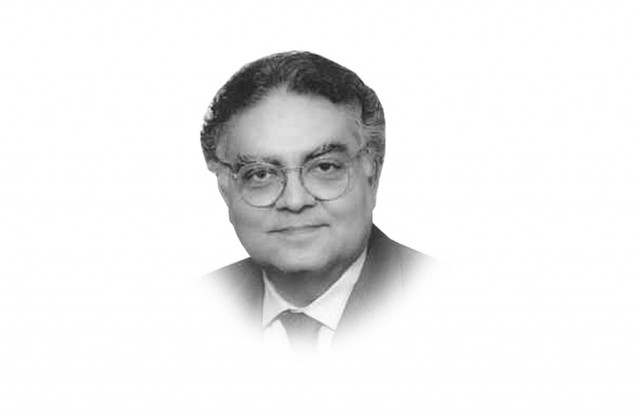The Bhutto factor
In the coming elections, which way the tide turns, whether towards Imran Khan or Bilawal Bhutto only time will tell.

Charisma is the ability –– through words, gestures and memories of heroic actions –– to project an image of infallible efficacy. Within this narrative of language and silence, resonate past glories and dreams of a future renewal. The charismatic leader claims the ability to fertilise the followers, articulate and actualise the creative potential of the people. Thus, such a leader relates with the people simultaneously as lover and beloved, poet and hero: there is intimacy in that the leader shares the longings of the people, yet is unreachable in the larger-than-life presence on the public stage. Zulfikar Ali Bhutto and Benazir Bhutto were two such charismatic leaders.
Each of these leaders as it turned out, during their respective tenures in government was flawed; each lost some of the sheen of charisma. Yet, each in the heroism of the death they chose to die and each in sacrificing personal life for the life of the people, regenerated that charisma. Benazir, just like Zulfikar Ali Bhutto before her, entered the flow of folk myth as a martyred faqir. Their legacy has become part of the elliptical rhythm of Dama Dam Mast Qalander around their shrines in Naudero: a rhythm that resonates in the folk tradition of every province of Pakistan. It is a drumbeat in which the music fuses the past with the future of this people, their suffering and sacrifice. It celebrates the love that entered what Bhutto called the ‘heart of history’.
It also constitutes the Bhutto factor that will influence voting patterns in the coming elections. Of course, Imran Khan is also attempting to carve out a place for himself in the pantheon of charismatic leaders. He is using the elements of charisma discussed above: recalling his heroic past (victory in the cricket world cup in 1992, the building and successful operation of a world class cancer hospital focused on the poor, the establishment of a university in Mianwali); claiming to pull the country out of its multiple and complex crises through quick and simple measures within a grand historic sweep of change.
Bilawal Bhutto has now entered the political stage with a powerful speech at the recent meeting of the Central Executive Committee of the Pakistan Peoples Party. His language was charged with defiance and memories of sacrifices by the Bhuttos. The passion and poignance of Bilawal’s declamation clearly moved the assembled senior leaders of the party and indeed many around the country who watched it on television. Now emerges another Bhutto, young, articulate, driven by the spirit of sacrifice as he effortlessly dons the inherited mantle of charismatic leadership.
In the coming elections –– the PPP under Bilawal Bhutto –– while rejuvenated by his charisma, is pulled down by its dismal record in the government this time: an economy in recession, a fiscal crunch, critical shortages of electricity, high inflation, rising poverty, lawlessness, a resurgent nationalism in Balochistan and charges of corruption. Against this record stands an impressive performance of courage and political deftness in strengthening the formal institutional structure of democracy through the Eighteenth, Nineteenth and Twentieth Constitutional amendments, changing the balance of power within the informal power structure towards elected civil authority; moving towards a more independent foreign policy by taking historic steps for free trade with India, taking forward the Iran-Pakistan oil and gas pipeline and conducting a parliamentary review of relations with the US for a more balanced relationship.
So which way the tide turns, whether towards Imran Khan or Bilawal Bhutto only time will tell, but the game is by no means over.
Published in The Express Tribune, April 9th, 2012.















COMMENTS
Comments are moderated and generally will be posted if they are on-topic and not abusive.
For more information, please see our Comments FAQ